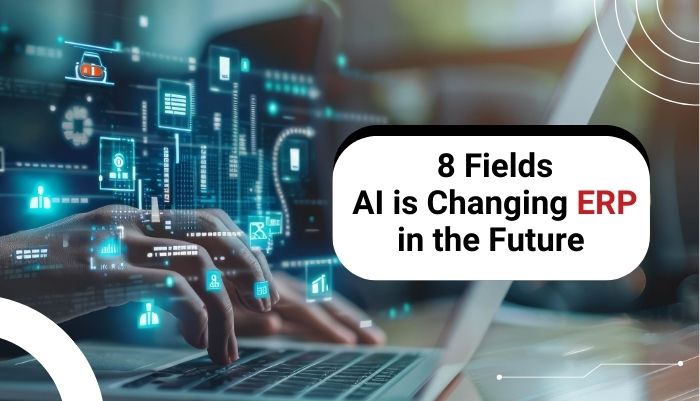Business operations are incomplete without the Enterprise Resource Planning, ERP, system that combines several functions under one umbrella such as finance, human resources, supply chain, and customer relations management. Most of these systems have introduced Artificial Intelligence hence improving their efficiency, decision-making processes, and innovativeness.
How AI is shaping the future of ERP Technology Let us Isolate the Following Fields
1. Calculated Decision-Making
Artificial Intelligence algorithms can process and analyze vast volumes of data in real-time, providing insights that improve the decision-making process. It allows a business to establish the pattern and predict what will happen next while using data for better results. For instance, AI can forecast future demands by analyzing sales data, thus helping organizations optimize their stock levels and production schedules.
2. Predictive Analytics and Maintenance
Probably, one of the most powerful applications of AI in ERP systems is predictive analytics. AI can use historical information to tell what may happen in the future, such as trends and problems. In this case, it helps a lot in matters concerning supply chain management and equipment maintenance. With AI-driven systems predicting fluctuations in demand, businesses can respond actively to all changes within their chains for supplies
3. Routine Task Automation
AI in ERP systems is automating activities that are monotonous and very time-consuming. Now, one can have AI-powered bots do tasks like data entry, processing invoices, and order management, therefore offloading employee burden and reducing the chance of human error. For instance, this can be used in the automatic matching of purchase orders to their respective invoices, flagging any discrepancies for review, and hence streamlining the procurement process.
4. Improved Customer Experience
Customer experience gets enhanced through AI by delivering personalized and efficient interactions. Anytime client inquiries are handled by AI-based chatbots that are integrated into ERPs thus making immediate replies available twenty-four hours a day. Artificial intelligence algorithms can provide personalized recommendations, offers, and promotions from customer data analysis thereby increasing their satisfaction level and loyalty as well. Also, businesses can make use of AI to better understand customer preferences and behaviour to ensure they implement more focused marketing strategies.
5. Advanced Fraud Detection
AI drastically improves fraud detection capabilities in an ERP system. AI also allow organizations to detect fraud in real-time by analyzing transaction patterns to identify anomalies. This increased level of security is essential for companies because it help protect a business from financial loss
6. Improving the Supply Chain
AI provides real-time visibility and insights into all aspects of the supply chain that results in efficient supply chain management. Through analyzing a multitude of data vendors, AI can predict supply chain disruptions -such as weather patterns or market conditions that are prepared to turn- and forecast the best responses. In turn, enhances customer satisfaction as a result by using time-proven best practices. There are many advantages to be mentioned here, this will lead us to more secure and potentially better performance.
7. Enhanced Resource Utilization (People)
AI changes recruiting, talent management & employee development in HR. It automates resume screening and helps find the right candidate for any job. Machine learning algorithms can predict employee turnover and help HR managers implement retention strategies. Additionally, AI can create personalized training programs, improving employee growth and productivity.
8. Real-Time Data Analysis and Reporting
AI enables real-time analytics and reporting, giving businesses up-to-date insights into their operations. This capability allows companies to react quickly to changing market conditions and make timely decisions. For example, AI can monitor sales performance in real time and dynamically adjust pricing strategies based on market demand and competition.
Conclusion
The Integration of AI into ERP systems is changing the way businesses operate. From intelligent decision-making and predictive analytics to automation and enhanced customer experience, AI is driving significant improvements across business functions. As AI technology continues to evolve, the future of ERP systems looks promising, offering opportunities for many businesses to increase their productivity, competitiveness and innovation AI adoption in ERP is not just a process but an essential strategy for businesses aiming to thrive in the digital age.


